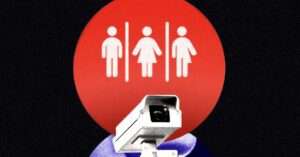The Delhi Police informed the Supreme Court on Tuesday that Umar Khalid, an anti-CAA activist, cannot claim equal treatment with Devangana Kalita, Natasha Narwal, and Asif Iqbal Tanha—co-accused who received bail in 2021. The police argued that the Delhi High Court’s decision to grant bail to these individuals was based on a flawed interpretation of the Unlawful Activities (Prevention) Act (UAPA).
During the hearing, Additional Solicitor General (ASG) S.V. Raju contended that the High Court incorrectly determined that the UAPA only pertains to offenses concerning the “defense of India,” disputing that Section 43D(5), which imposes a strict barrier against bail, was applicable. According to Raju, the High Court’s misinterpretation led it to use Section 439 of the CrPC for bail instead of Section 437 of the CrPC, which applies to offenses punishable by death or life imprisonment.
Raju further pointed out that when the Delhi Police challenged the bail orders granted in 2021, the Supreme Court did not cancel them because the standard for revoking bail is distinctly more stringent than that for granting it. He remarked, “If bail is granted on a wrong interpretation of law, there is nothing like parity,” stressing that the Supreme Court had previously ruled that the 2021 judgment should not serve as a precedent for others.
Khalid’s previous bail application was rejected by the Delhi High Court in October 2022, and although he approached the Supreme Court, he withdrew his petition in February 2024. Raju emphasized that, in the absence of new developments, Khalid cannot submit a fresh bail application solely based on delays. “Successive bail applications are allowed, but not on the same facts. There must be changed circumstances. Here, there are none,” he stated.
The bench, comprising Justice Aravind Kumar and Justice N.V. Anjaria, is reviewing a series of bail petitions linked to FIR 59/2020, which is associated with what is claimed to be a larger conspiracy behind the Delhi riots of 2020. In response to Justice Kumar’s inquiry about the distinctions made by the police regarding the accused in the same FIR, Raju reiterated that the High Court’s rationale was not based on factual differences but rather on incorrect legal assumptions.
Solicitor General Tushar Mehta briefly addressed the bench before Raju, alleging that the violence was premeditated and orchestrated rather than spontaneous. He claimed the accused sought to sow discord on communal lines and cited statements from accused Sharjeel Imam that hinted at a coordinated effort extending beyond Delhi. “This was not merely an agitation against one government law. This was an attack against the sovereignty of the nation,” Mehta added, noting that evidence from social media suggested attempts to foster national unrest.
The petitioners include Umar Khalid, Sharjeel Imam, Gulfisha Fatima, Meeran Haider, Shifa-ur-Rehman, among others, who are charged under the UAPA and the Indian Penal Code (IPC) for allegedly orchestrating a broader conspiracy behind the communal violence in Northeast Delhi in February 2020. Some individuals, such as Devangana Kalita, Natasha Narwal, and Asif Iqbal Tanha, were granted bail in 2021, while Safoora Zargar was released earlier on humanitarian grounds due to her pregnancy.
The High Court’s decision on September 2 this year denied bail to Khalid and others, who have been in custody for over five years. The Supreme Court continues to deliberate on the bail petitions as it hears final arguments. The 2020 Delhi riots resulted in 53 fatalities, with 38 victims being Muslim, sparking debates about whether the state has pursued activists and students who peacefully opposed the Citizenship (Amendment) Act (CAA), while overlooking those who incited the violence.
Tags: Delhi Police argue in SC that Umar Khalid can’t seek parity; say HC ruling misinterpreted UAPA Extract 5 SEO-friendly keywords as tags. Output only keywords, comma separated.
Hashtags: #Delhi #Police #argue #Umar #Khalid #seek #parity #ruling #misinterpreted #UAPA










